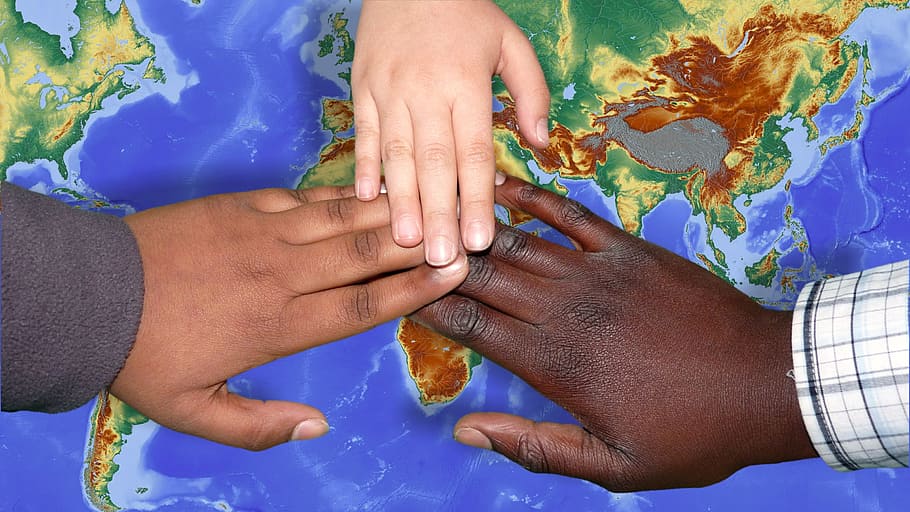Too often, we speak of “honor-shame” cultures when, in fact, the reality is more nuanced.
Among cross-cultural psychologists, a growing body of research explores different ways that people from different cultures view and value their own sense of self-worth. This research identifies three distinct “cultural logics”: dignity, honor, and face.
In this blog post, I’ll explain the key differences between these three perspectives. In the next post, I’ll discuss some of the implications of these differences for ministering cross-culturally.
Distinguishing Dignity, Honor, & Face Cultures
As followers of Christ engaged in cross-cultural ministry, we face an intricate tapestry of cultural differences. Three fundamental cultural threads worth knowing include dignity cultures, honor cultures, and face cultures. By gaining a deeper understanding of these paradigms, we aim to enhance our ability to serve and contextualize the gospel in diverse cultural contexts.
Dignity Cultures
Dignity cultures derive self-worth from a sense of inherent human dignity and individual autonomy. Rooted in the concept of intrinsic worth unaffected by external factors, these cultures emphasize personal rights, equality, and respect for all individuals.
The strength of dignity cultures lies in promoting individual freedoms and rights, fostering a more inclusive and egalitarian society. However, an inherent weakness is that an excessive focus on individual autonomy can overshadow the importance of social cohesion and collective responsibilities. These cultures, primarily prevalent in the West, value individuals based on their innate dignity, leading people to derive self-esteem from their moral convictions rather than public opinion.
In the context of cross-cultural ministry, it is essential to acknowledge and understand this inherent dignity when communicating the gospel, emphasizing the worth and value of individuals in God’s eyes. This recognition allows for a more effective engagement with dignity cultures, highlighting the significance of each person’s inherent worth, while also balancing individual rights and collective responsibilities.
Honor Cultures
Honor cultures link an individual’s self-worth to their reputation and social standing within the community. A person in these cultures is expected to protect their reputation and the honor of their family or group.
The strength of honor cultures lies in promoting social harmony and cohesion, as individuals are motivated to behave in ways that enhance their reputation and avoid actions that might bring shame. However, a potential weakness is that the emphasis on honor can lead to violence or aggressive behaviors when defending one’s reputation.
Prevalent in regions like Africa, Latin America, and the Middle East, honor cultures revolve around the concepts of honor and shame, which can be gained or lost and are closely tied to fulfilling societal or familial roles and expectations.
As Christian missionaries, understanding the central role of honor in these cultures enables us to present the gospel as a story of restoration, emphasizing Christ’s role in restoring our honor before God. In doing so, we acknowledge the importance of honor in these cultures while also encouraging a peaceful and redemptive approach to resolving conflicts arising from the desire to preserve one’s reputation.
Face Cultures
Face cultures highly value maintaining social harmony and avoiding public embarrassment (e.g., “losing face). People in these cultures are sensitive to the impact of their actions and words on their own and others’ social standing.
An emphasis on face allows for positive social interactions and a focus on preserving relationships. However, it can also lead to a lack of direct communication and addressing important issues honestly, since maintaining harmony often win out over expressing one’s true thoughts and feelings.
Primarily found in East Asia, so-called “face cultures” prioritize social harmony and collective reputation. “Face” represents an individual’s respectability and social standing. The significance of saving or gaining face in these cultures can result in severe social consequences if one face is lost.
Understanding this cultural aspect enables us to contextualize the gospel as a means of saving face and restoring relational harmony through Christ’s sacrifice. This presentation of the gospel is highly relevant and relatable to individuals in face cultures (since it aligns with their cultural values of preserving face and maintaining social harmony). However, it also encourages honest and open communication about important matters while emphasizing the restoration and redemption found in Christ’s message.
How are they similar?
While these cultural constructs certainly have unique attributes, they also share certain traits.
For example, a common characteristic among dignity, honor, and face cultures is the universal human need for social recognition and respect. Regardless of whether we’re discussing Western dignity cultures, Middle Eastern honor cultures, or East Asian face cultures, you’ll find that each values the social recognition of an individual’s worth.
This human need, whether realized through inherent dignity, honor bestowed upon fulfilling social roles, or maintaining face in societal interactions, forms a foundational common ground among these cultures.
Second, these three culture types share an emphasis on morality and social order. In dignity cultures, individuals tend to derive their self-worth from an internal moral compass, fostering a society that upholds the dignity of every individual. Honor cultures, while more externally driven, place a strong emphasis on moral behavior tied to societal roles and expectations. Similarly, face cultures stress social harmony, which can only be achieved through proper conduct and adherence to social norms.
Lastly, each has mechanisms for managing potential offenses or transgressions. In dignity cultures, there’s a tendency towards dialogue, forgiveness, and legal processes. Honor cultures may emphasize confrontation, even retaliation, to defend honor, and face cultures might utilize intricate patterns of indirect communication and mediation to preserve face and social harmony. While the specific mechanisms differ, their presence is noteworthy.
A Few Initial Implications
In the next post, I’ll delve more fully into the practical implications for ministry of distinguishing between dignity, honor, and face cultures. For now, here are just a few initial thoughts.
Recognizing that these culture share traits is significant for our cross-cultural communication and ministry. Here’s why:
(1) Acknowledging the universal need for social recognition can aid us in presenting the gospel in a way that affirms the value of every individual. In a world often marked by devaluation and dehumanization, the gospel’s affirmation of human worth can resonate powerfully across cultures.
(2) Understanding the shared emphasis on morality and social order helps us appreciate the moral intuition embedded in different cultures, helping us discern bridges for gospel conversations. This understanding can enable us to present Christ’s teachings as fulfilling the deepest moral longings of humanity.
(3) Recognizing the common mechanisms for dealing with offenses provides us with a platform to discuss sin, forgiveness, and reconciliation–– central themes of the gospel message. Understanding these mechanisms can equip us in explaining the radical nature of God’s forgiveness through Christ.















